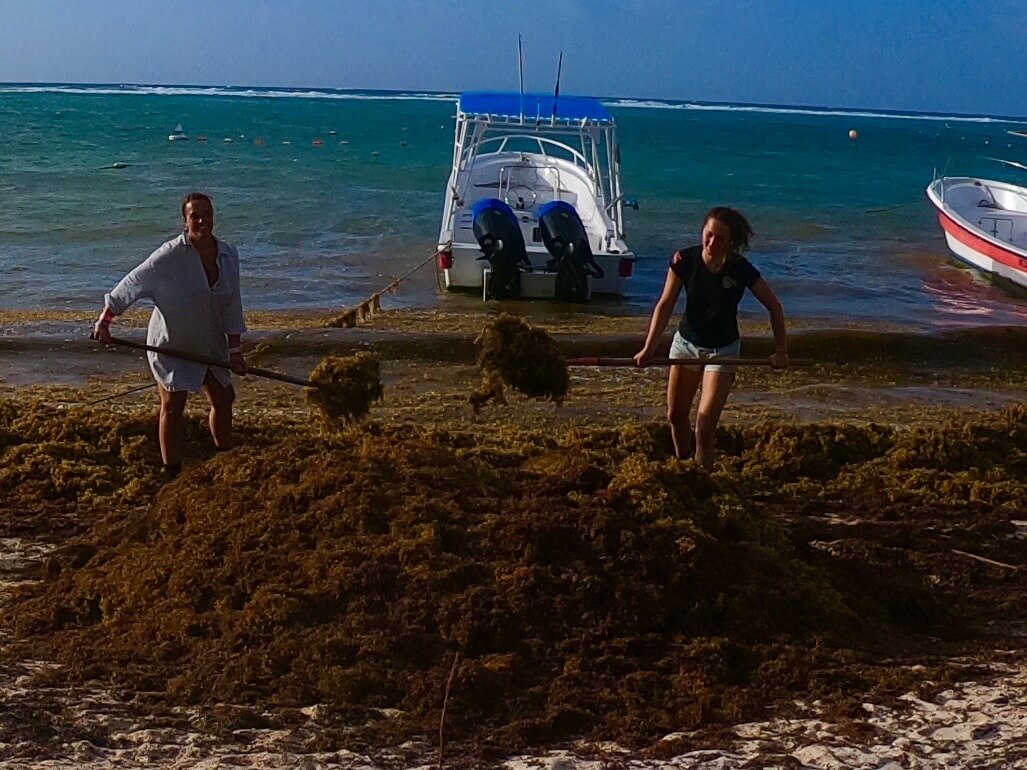On my first day as a volunteer Research Assistant in Akumal, Mexico, I was overwhelmed by what I saw. There was a smelly, brown-colored “something” spread all over the coastline. I learned that this is sargassum, which is a family of brown seaweed.
In 2018, a sargassum crisis hit the Caribbean Sea, causing catastrophic damage to the reefs. It washes ashore, piles up on the beach, and decomposes. Not only does it block beaches and repel swimmers, it also emanates a foul smell and releases fumes of sulfur compounds that can cause respiratory problems. Needless to say, it has a major impact on tourism, fisheries, and wildlife. Incoming floats of sargassum choke sea grasses and coral reefs, while fishermen struggle to get in the water. The sargassum tangles up their engines, their nets, and their lines. Factors that have led to the growth of sargassum are the increase in sea temperature, the change of sea currents due to climate change, nutrients from agricultural fertilizers, and inadequately treated sewage that ends up in the sea. Sargassum on the beaches of the Mexican Caribbean has killed 78 species, including fish and corals, as it reduces the level of oxygen in the ocean, changes the acidity of the water, and increases the levels of ammonium and phosphorus tenfold. In time, the presence of sargassum will lead to a process of desertification in the shallow seabed, which may become an irreversible phenomenon.
It’s not these algae that are the problem, but the large quantities in which they are produced. The oceans occupy two-thirds of the planet, so most of the air we breathe is thanks to them. It is of high importance to restore and mitigate the effects of sargassum, to use it sustainably, and to educate as many as possible about the oceans.

One method of removing the sargassum is by spade and wheelbarrow onshore. So, we did. On the days we couldn’t go out on the water, we would get our dive boots on, take a shovel or rake, and start piling up the sargassum for collection by the municipality. It was a tough physical exercise but it was so rewarding to see a clean beach. Unfortunately, the beach didn’t stay clean for very long as the next float of sargassum would be ready to attack again. Even though you know that the process keeps repeating itself, it gives you a feeling of fulfilment, knowing that you’re helping to make a difference. Our oceans are in great danger and we need all the help we can get. Together we can create a better world!

Let me remind you again: Reduce – Reuse – Recycle.
